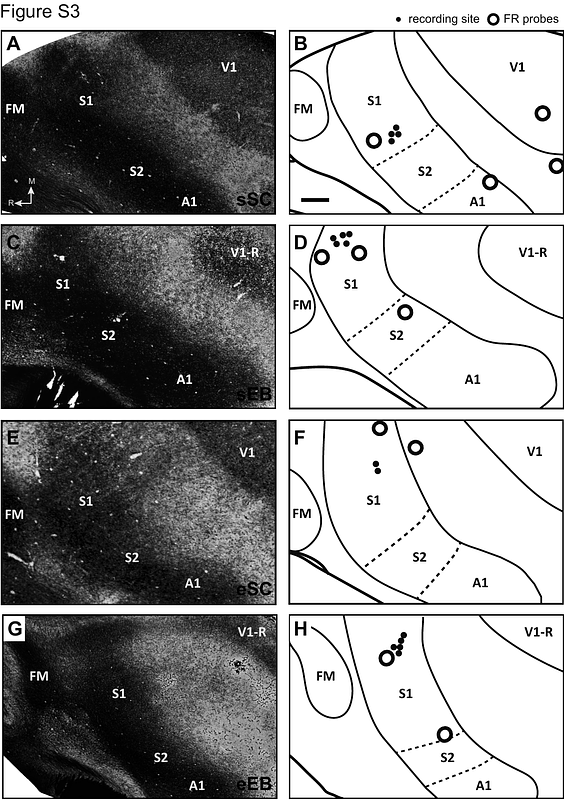Complex three-dimensional rearing environments amplify compensatory plasticity following early blindness

Complex three-dimensional rearing environments amplify compensatory plasticity following early blindness
Ramamurthy, D. L.; Englund, M.; Kovacs, T. J.; Dodson, H.; Krubitzer, L. A.
AbstractThe neocortex has a remarkable capacity to alter its functional organization and connectivity in response to sensory loss, particularly if this loss occurs early in life. A key question is whether this cross-modal reorganization is driven by sensory deprivation itself or through enhanced use of the spared senses. We investigated how different rearing environments shape neural responses in primary somatosensory cortex (S1) of short-tailed opossums (Monodelphis domestica), following elimination of visual inputs through bilateral enucleation in early development. Early blind and sighted littermates were reared in enriched environments to promote active tactile exploration in three-dimensional (3D) space, or in highly restricted standard laboratory cages. In adulthood, both enriched groups showed adaptive changes in exploration patterns and gap crossing behaviors relative to standard-reared counterparts. Thus, early blind animals showed behavioral compensation for vision loss, when challenged by complex environments. Enriched rearing increased selectivity of S1 neural responses to whisker touch and powerfully altered receptive field shapes such that they were less horizontally anisotropic. This shift was strongest in enriched early blind animals, enhancing tuning along the horizontal axis more than standard-reared early blind animals. Thus, alterations in S1 receptive fields following early blindness were amplified by environmental complexity. Sighted opossums reared with enrichment also showed similar whisker receptive field plasticity, though to a slightly lower degree. Together, these results demonstrate the strong influence of the rearing environment on reorganization of cortex that processes inputs from the spared senses, underscoring the role of experience in directing compensatory plasticity following early sensory loss.